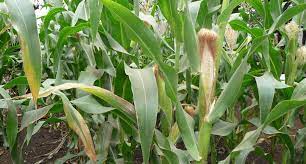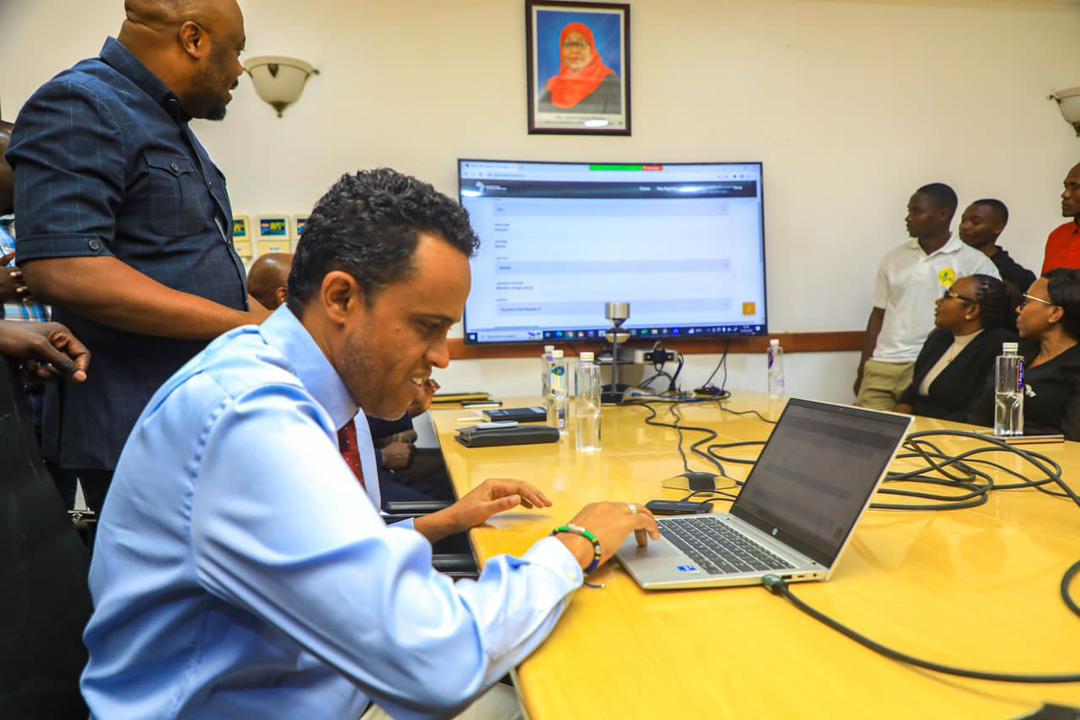Cultivating Resilience: Uniting Against Climate Change for Africa’s Food Future
By Amath Pathe Sene
Africa stands at a critical juncture in its history, as it faces the twin challenges of climate change
and food security. As global temperatures rise and weather patterns become increasingly
unpredictable, the continent’s agricultural systems are under threat, as they are forced to bear
the brunt of severe droughts, floods, and heat waves. Once seemingly confined to the pages of
scientific journals, the climate change phenomena is now etched in every morsel we put on our
plates. Food – the sustenance of life – hangs on a delicate balance that demands our attention,
compassion, and united action.
Ignoring the Climate Crisis: Gambit or a Catastrophe for Africa’s Future?
Failing to acknowledge the urgency of the climate crisis and sidestepping the imperative for
immediate action is a risky gambit that Africa simply cannot afford. Climate change is a human
creation that has exacerbated the risks of doing business. The agricultural sector, a linchpin of
many African economies, is highly susceptible to the disruptions caused by climate change.
Climate inaction will inevitably propel Africa towards a catastrophic future characterized by
widespread food insecurity, economic instability, and escalating conflict.
Inversely, this moment offers us a unique opportunity—a call to collectively recognize the
stakes, unite in resolve, and pave a sustainable path towards resilience and prosperity. The
urgency of climate adaptation and mitigation demands an integrated approach that combines
technology, science, policy and investments. Technological innovations have the power to
revolutionize agriculture, making it more resilient and low emissions. Drought-resistant crop
varieties, innovative digital technologies, and climate smart farming techniques can all mitigate
the impacts of changing weather patterns and improve productivity.
A robust example of this united front is the Great Green Wall initiative, aimed at combatting
desertification across the Sahel region. This collaborative effort involves over 20 African
countries, demonstrating the power of shared vision and action. By planting a mosaic of trees
and vegetation, and promoting agroforestry, the initiative seeks to halt desert encroachment,
improve soil fertility, and create livelihoods for local communities. Such initiatives underscore
the potential of collective resilience-building in the face of climate adversity and restoring
degraded landscapes.
Collaborative policymaking and cross-sectoral dialogue are equally crucial. Governments across
the continent must upgrade their national adaptation policies and plans so that they incentivize
sustainable land use, promote agroforestry, safeguard biodiversity, and foster the use of
sustainable renewable energy to power agri-food systems value chains. We must renew our
policies by continuously sourcing inputs from local communities, farmers, scientists, and other
stakeholders. Only through inclusive dialogue can solutions be tailored to the unique challenges
faced by diverse regions within Africa.
Policy and plans are not enough and will not lead to the change we want. Sufficient
concessional financial resources are needed to implement these policies at continental level.
Africa should also nurture and scale up all green financing products and green business models
that will help transform our food systems. In addition, enhanced knowledge management and
exchanges, innovation, and digital technologies are key ingredients for creating jobs along food
systems value chains.
In September, leaders, scientists, and innovators from Africa and beyond will gather for the
Africa Food Systems Forum 2023, in Dar es Salaam, Tanzania, ahead of COP 28 in Dubai. Central
to this year’s dialogues at the AGRF is the issue of the role of youth and women in climate
action and the transition to sustainable, inclusive, and resilient food systems. Constituting over
half of the workforce in the agricultural sector, especially on smallholder farms, women are also
among the most vulnerable to climate change and poverty due to the numerous restrictions on
their access to education, financing, and other crucial resources. At the same time, it is a well-
known that millions of African youths enter the labor market every year, of which only a small
percentage is able to secure decent employment. This year’s Summit will not only give the
floor to women and youths to showcase their innovations, but also define the concrete actions
needed to enable them to overcome the obstacles they face and use their full potential to
revolutionize food systems across the continent.
Africa’s Solutions to Climate at the AGRF 2023
What lies ahead for climate action in the lead up to COP 28? On the road to securing our food
future, the Africa Climate Summit in Nairobi and the upcoming Africa Food Systems Forum
(AGRF) 2023 in Tanzania will be key milestones. Here, key stakeholders will gather to define the
climate actions needed to fortify the resilience of our foods systems and agriculture, especially
those that embrace climate smart solutions. The momentum built at this forum will set the
stage on climate resilient food systems in Africa for the critical COP 28 Climate Summit. As the
world gears up for COP 28, we must all grasp that tackling climate change is not a solitary
endeavor. It is a multi-dimensional challenge that requires collaboration, innovation, and
inclusivity to reshape our food systems, confront emerging challenges, and ensure a prosperous
future for generations to come.
While the path ahead may be demanding, the rewards are immeasurable. Collectively, we can
shift the tide and cultivate a resilient food future for Africa. Our hands hold the seeds of hope,
the commitment to resilience, and the potential for a sustainable harvest. Now, more than
ever, the call for united action echoes across African fields, cities, and communities. Together,
we can foster a productive, nutritious, inclusive, resilient and sustainable food future for Africa.
The writer is the Managing Director of Africa Food Systems Forum (AGRF)


